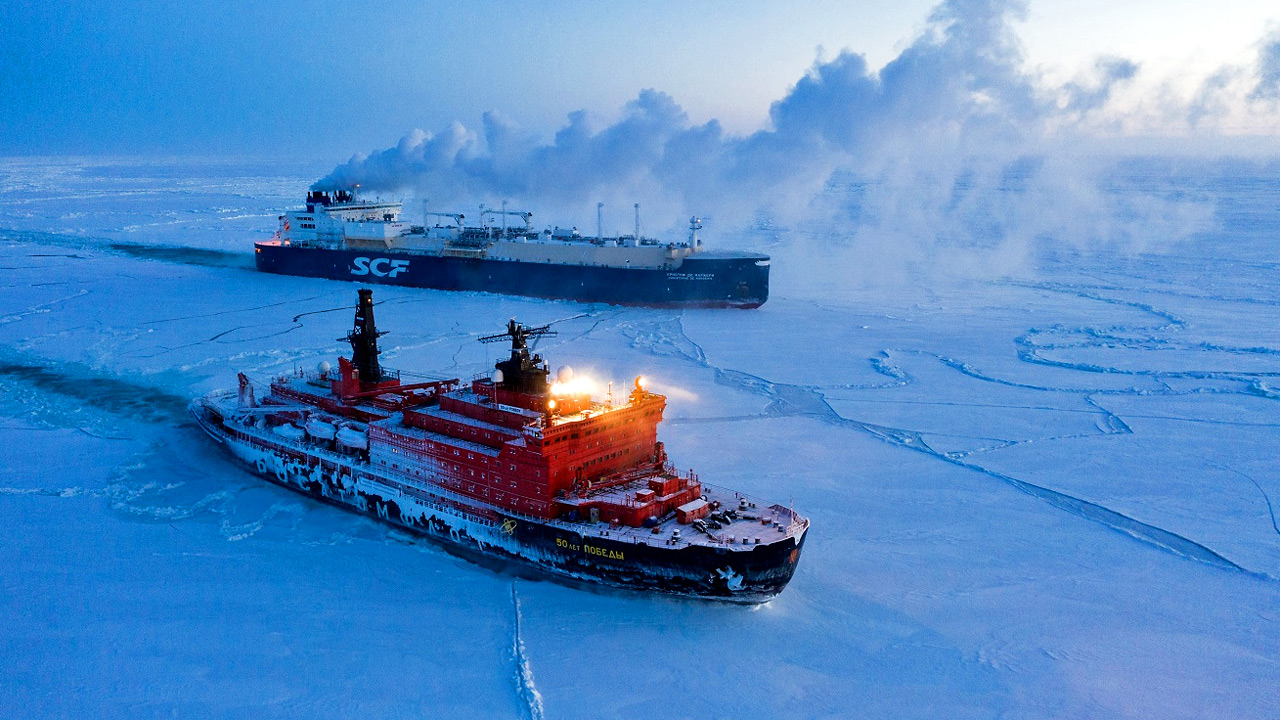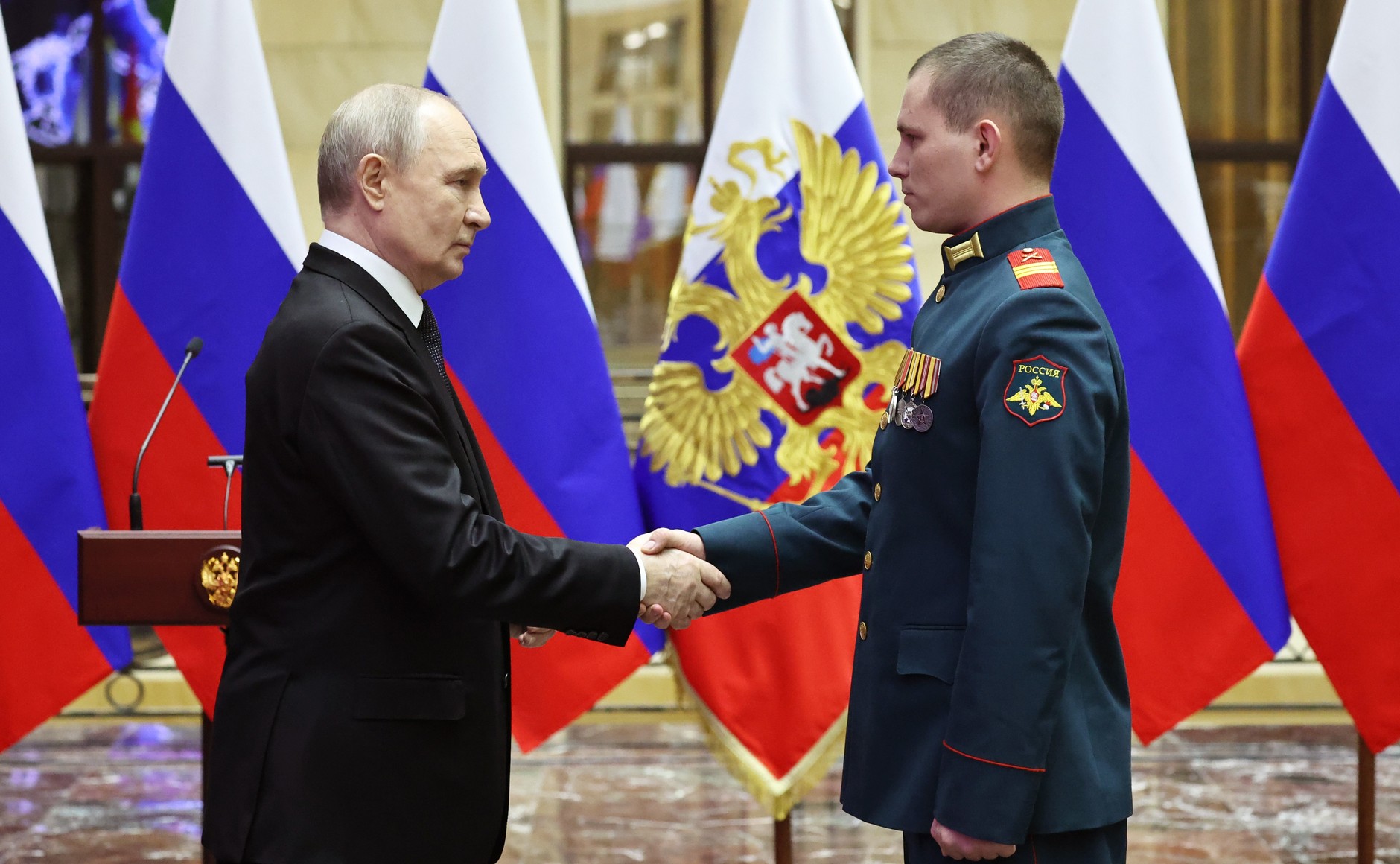
China Exploiting Russian Weakness in Arctic–and Moscow Has Reason to Worry
China Exploiting Russian Weakness in Arctic–and Moscow Has Reason to Worry
Executive Summary:
- The People’s Republic of China (PRC) has expanded its activities in the Arctic since the start of Russia’s full-scale invasion of Ukraine. Moscow needs PRC engagement in the Arctic as sanctions limit Russian activities, but fears the PRC will try to become the dominant power in the region.
- Moscow’s typically unspoken concerns are now greater than when the PRC positioned itself as “near Arctic” in 2018.
- Relations between Russia and the PRC in the Arctic are not necessarily headed toward an immediate breakdown or at a point where the West could easily exploit these differences. They are, however, critical developments to understand lest policies intended to contain one of these actors open new possibilities for expansion by the other.
Since the start of Russia’s full-scale invasion of Ukraine three years ago, Beijing has increased its activities in the Arctic as Moscow faces little choice other than to welcome these activities given restrictions induced by Western sanctions. On the one hand, the Kremlin welcomes the People’s Republic of China’s (PRC) Arctic engagement as sanctions limit Russian activities in the region. On the other hand, Moscow fears the PRC may advance its position and become the dominant power in the Arctic. Such concerns in Moscow are seldom explicitly conveyed, as may be expected, given the importance of maintaining positive relations with Beijing (see EDM November 13, January 23, 2024). It does, however, seem clear that these concerns about possible PRC displacement of Russia’s position in the Arctic are greater today than they were in the immediate wake of Beijing’s 2018 declaration that it is a “near Arctic” state with its own interests and concerns in the high north (State Council Information Office of the People’s Republic of China, January 26, 2018 (in English)). In 2020, the Russian Foreign Ministry’s special envoy in the Arctic Council at the time stated that Russia “disagree[d] with” the characterization of the PRC as a near Arctic state, instead agreeing with then-U.S. Secretary of State Michael Pompeo that “there are two groups of countries—Arctic and non-Arctic” (TASS, June 16, 2020).
There is, moreover, every reason to believe that Moscow’s concerns will intensify further as Russia’s resources and attention are consumed in its war against Ukraine, as well as given the PRC’s ambitious Arctic programs in icebreaker construction and infrastructure development along the Northern Sea Route (NSR) and beyond (The Barents Observer, March 21, 2019; Rosatom Press Service, November 26, 2024). Relations between Russia and the PRC in the Arctic are not necessarily headed toward an immediate breakdown or at a point where the West could easily exploit these differences. On the contrary, Russia and the PRC are publicly demonstrating their cooperation and shared interests toward this region. For example, the first meeting of the Subcommission on Cooperation on the NSR of the Russian-Chinese Commission for the Preparation of Regular Meetings of Heads of Government was held in St. Petersburg in November 2024, a few months after Russia’s Rosatom and Chinese businesses signed a joint venture on ship construction and year-long transportation along the NSR (Rosatom Press Service, June 6, November 26, 2024). Developing tensions in these relationships, however, are critical to understand, particularly in the West, lest policies intended to contain one of these actors open new possibilities for expansion by the other.
A major reason for the potential emerging conflict between Russia and the PRC in the Arctic is their contrasting focuses. As in the past, Russia has focused primarily on security issues and considered the development of the NSR as a tool to strengthen its position in the region. On the other hand, the PRC has focused primarily on economic issues and the ability to use the NSR to expand its trade with Europe and the West. Over the last decade, however, the PRC has made clear that its “economic” approach is the basis for advancing its security interests. For the time being, these interests are furthered together with Russia, but this may not be the case in the future, as some Russian commentators have considered (see EDM June 12, September 3, 2019).
In the months before Russian President Vladimir Putin launched his full-scale invasion of Ukraine in February 2022, some Russian writers expressed fears that the PRC, even then, was only helping Russia on the NSR and in the Arctic to be in a position to push Moscow aside and dominate the Arctic Ocean (See EDM May 6, 2021, February 1, 2022). Following Putin’s invasion and the West’s imposition of sanctions, most commentaries in Moscow, as well as in the West, emphasized the ways in which Russia and the PRC have been expanding cooperation in the Arctic rather than on their differences (see EDM September 5, October 8, 2024).
As the war has prolonged, however, Russian commentators are now expressing increased concerns that the PRC, while nominally Russia’s ally, is strengthening itself at Moscow’s expense and will continue to do so (See EDM April 4, September 28, 2023). These observers are vocalizing their concerns despite Russian leaders celebrating Beijing’s public actions. Vasily Koltashov, an expert at Moscow’s Plekhanov University of Economics, has been one of the most prominent critics of the idea that the PRC will always remain Russia’s ally in the North. He has argued that all will be well if but only if Russia can control the PRC’s participation in Arctic affairs (Nakanune.ru, March 24, 2023). In such a case, Beijing would make investments that Russia needs without challenging Moscow’s position. He said, however, there is a very real risk that if Moscow’s own position deteriorates further or if the Kremlin fails to manage the situation well, the PRC will exploit the circumstances, and Russia will be “transformed into the periphery of China,” an outcome Putin clearly does not want but may be unable to prevent (Ibid). In that event, Russia would lose more than dominance over the NSR, it would also lose its place in the Arctic, and potentially much more, given the importance of the Arctic in international affairs (Ibid).
Other Russian analysts have said much the same, albeit typically in less dramatic language (see EDM, March 28, 2023). In recent months, more Moscow commentators have picked up on these concerns, given Russia’s own domestic challenges and Western sanctions. Despite the initial 2024 NSR development plan goals, which aimed to increase cargo traffic to 90.01 million tons, or Putin’s presidential decree to increase cargo traffic up to 80 million tons in 2024, Rosatom reported 37.8 million tons of cargo traffic (President of Russia, May 7, 2018; RBC, March 29, 2024; Rosatomflot.ru, January 9; The Barents Observer, January 10). Although this number is still higher than the previous record by 1.6 million tons, it demonstrates the discrepancies between Moscow’s aims compared to its capabilities in the Arctic at present (Rosatomflot.ru, January 9; TASS, January 20). Furthermore, Russia failed to meet targets for icebreaker construction (Riddle Russia, July 15, 2024; Italian Institute for International Politics Studies, June 25, 2024; The Barents Observer, October 23, 2024; Profile, November 9, 2024). These difficulties have prompted some Russian experts to conclude that the NSR has become “a black hole” for the Russian budget, a position that means Moscow may do even less there now and in the future than in the past and further open the NSR to PRC domination (The Moscow Times, March 25, 2024).
In the last six months, the PRC has taken positions that both support Russia’s broader security interests in the Arctic and challenge them, although the former have attracted far more attention than the latter. On the one hand, the PRC has been keen to work with Russia on the development of a scientific research center in Svalbard, a position Moscow clearly welcomes (see EDM, May 30, 2024; The Barents Observer, September 10, 2024). On the other hand, the PRC has not taken positions on security issues that might land it in greater difficulty with the West and prompt Western sanctions (Window on Eurasia, September 13, 2024).
These trends prompted Avesta Afshari Mehr, a Russia expert based in the United Kingdom, to argue last week in The Moscow Times that Russia is “unlikely to cede control of Arctic resources or security matters. China, for its part, is careful not to push too far, knowing that openly challenging Russian sovereignty in the Arctic could backfire” (The Moscow Times, February 11). On the basis of a close examination of Russian sources, Mehr stresses that at present, “Russia views the Arctic as a critical security zone” while “China sees it as an economic opportunity,” diverging positions that suggest that “their interests may not always align” especially as “Moscow seeks economic survival now” even as “Beijing pursues long-term strategic gains” (Ibid).
For Western countries, these different changes mean that responses to Russian and the PRC activities in the Arctic must recognize that these two actors sometimes coordinate as allies, but also sometimes engage as competitors. Any Western approaches must be designed in such a way that containing either the PRC or Russia now does not provide future opportunities for the other.


